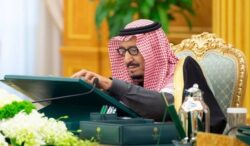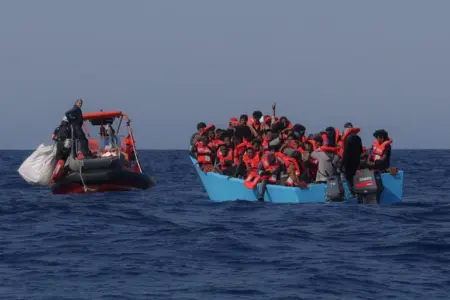King Salman has sent an invitation to the leaders of the Gulf states and leaders of other Arab countries to two summits to discuss the recent attacks by the Iranian-backed Houthis in the UAE and on Saudi Arabia’s oil pipelines.
Iran, poised, with the possibility of war looming as the US military has deployed combat ships to the Persian Gulf States, assisted by the GCC, led by Saudi.
The coalition, which receives arms and intelligence from Western nations, carried out air strikes last week in Yemen’s capital Sanaa, which the Houthis control.
This was in response to the drone attacks the Houthi’s carried out on Saudi pipeline.
“The attack on ships in the territorial waters of the United Arab Emirates and the terrorist-backed Iran-backed Houthi militias’ attack on two oil pumping stations in the Kingdom have serious implications for regional and international peace and security and for the supply and stability of world oil markets,” the foreign ministry said in a statement carried by the Saudi Press Agency.
China’s senior diplomat Wang Yi told US Secretary of State Mike Pompeo that China hopes all parties will exercise restraint and act with caution to avoid escalating tensions.
Saudi Arabia has accused Iran of ordering an attack on Saudi oil pumping stations that Yemen’s Houthi militia has claimed responsibility for.
The attack “proves that these militias are merely a tool that Iran’s regime uses to implement its expansionist agenda,” tweeted Prince Khalid bin Salman, a son of King Salman.
“The terrorist acts, ordered by the regime in Tehran, and carried out by the Houthis, are tightening the noose around the ongoing political efforts.”
The Muslim Gulf States and Asia are split on their stance towards Iran. The Suadi led coalition is eager to dismantle the Persian state with the hope of stemming the Houthi insurgents in Yemen and significantly the Shia threat to the region.
Saudi Arabia, see the mainly Shia population of Iran as a threat to their sovereign rule and dominance in the region.
Whilst the other Muslims countries in the region would prefer restraint and dialogue. For some, like Pakistan, they fear, the US will attack Iran and in the process will create another Iraq in the region. leaving behind the ruins that spawned the modern day ISIS.
The Houthi’s, have been battling against a Saudi-led military coalition for four years, said they carried out drone strikes, using American drones, against the East-West pipeline.
The Houthi’s maintain they are fighting against Saudi oppression and in the process, this conflict has left Yemen on the brink of famine.
Iran has demonstrated remarkable restraint with Ayatollah Seyyed Ali Khamenei on Wednesday ruled out the possibility of war between the United States and Iran, saying Washington knows engaging in such a conflict would not be in its interest.
Political commentators in the middle east and some in Washington, have suggested that a link between the Houthis and Iranians is manufactured and that the ‘real’ power behind the Houthi’s is the CIA.
They have suggested, that it is impossible for the Houthi’s to arm themselves with made in US weapons and ammunition and this would not have happened without the knowledge of the CIA.
Additionally, this opportunity serves as a way to control or manage the Saudi regime. Saudi Arabia is not known for its warmongering or need for huge military resources, however, these conflicts provide justification for the huge Saudi expenditure on US military.
The US has repeatedly defended the Saudi government through various recent controversies, including the Khashoggi murder, which has enraged global humanitarian agencies.
…………………………………………………
[simple-payment id=”7912″]





